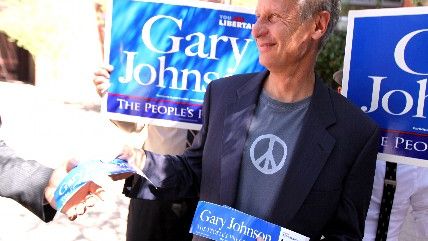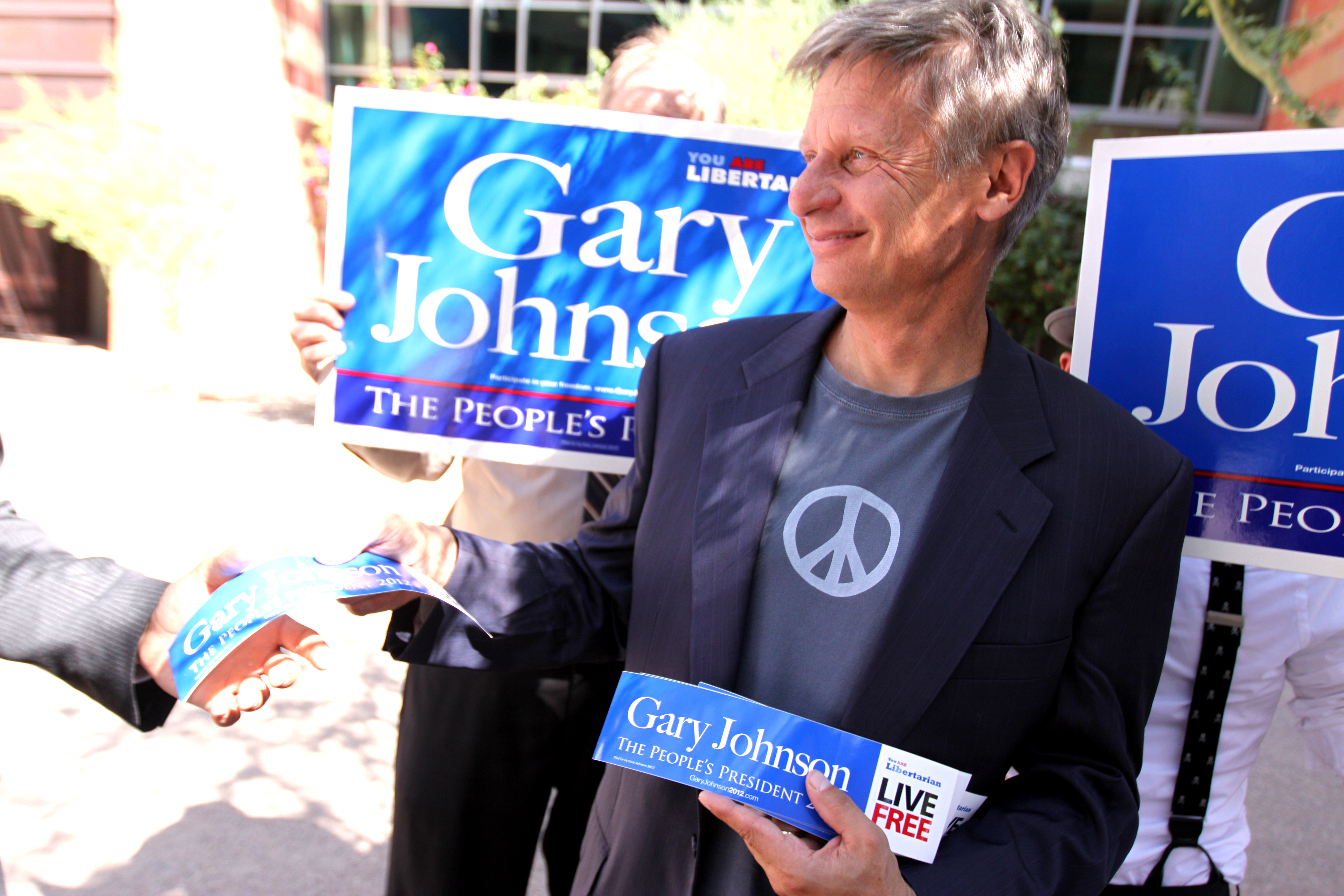Gary Johnson's Not Happy That Hillary Clinton's Geography Gaffe Didn't Get the 'Aleppo Moment' Treatment
Clinton's gaffes and foreign policy failures haven't generated the mockery Johnson has received.


Libertarian presidential candidate Gary Johnson is not happy that Hillary Clinton's foreign policy gaffe at Wednesday's debate was noticed by almost no one in the mainstream political commentariat.
Clinton, whose candidacy is largely built on her foreign policy experience, described the Iraqi city of Mosul as a "border city," when it is in fact, 75 miles from the nearest border in one direction, and 100 miles from the border of Syria in another direction. As U.S. News and World Report's Steven Nelson noted, "Ireland is closer to Wales. Montreal is nearer to New York state and Damascus, Syria's capital, is closer to Israel – either its de facto or internationally recognized borders."
In an interview with U.S. News, Johnson said, "The obvious response is there is a very hypocritical double standard here," adding, "If anyone ought to know geographic locations, it's Hillary."
Johnson's clearly still chafed over the fact that his inability to recognize the name of the city that is the epicenter of the Syrian refugee crisis, Aleppo, was undoubtedly the most covered moment of his campaign. His deer-in-the-headlights reaction—"What is Aleppo?"—has been used by his critics (many of whom are Clinton supporters who believe any vote for a third party candidate is a moral deficiency) to paint him as a goofy, pot-addled ignoramus whose dangerous lack of foreign policy knowledge would make the country unsafe.
To be sure, Johnson did not make a compelling case for his brand of non-interventionism when he completely blanked on Aleppo, which is a name that most people who consume news on a daily basis would at least recognize as a troubled Middle Eastern city. Johnson did much better when he laid out what I called a "sane, coherent, and skeptical foreign policy" at the University of Chicago earlier this month. In that address, he rejected the idea that libertarianism is synonymous with "isolationism," but also insisted that Congress should do its constitutional duty and declare war if necessary, rather than rely on the executive branch to use legal contortions to justify military intervention. He also said that Americans should not expect some kind of decisive victory over ISIS or any other Islamist extremist group, nor should the world expect the U.S. to serve as the world police for the rest of time.
Maybe it is unfair that in presidential elections, optics are pretty much everything, and blanking on trivia or bizarrely sticking your tongue out at a reporter during an interview is bound to be more noticable than Clinton mistating important details during a presidential debate—even though her supposedly unmatched grasp of details is one of her largest selling points.
To be sure, this isn't the first time Clinton has made a foreign policy "gaffe" during a nationally televised forum. At the Iraq and Afghanistan Veterans of America (IAVA) Commander-in-Chief forum last month, she defended her support for U.S. military intervention in Libya because, she said, the alternative would have meant civil war. The fact that Libya has been in a state of civil war since that intervention five years ago went unnoticed by the mainstream media.
Also barely touched upon is the fact that a recent U.K. Parliament inquiry found that the NATO intevention in Libya in 2011 was the result of international leaders cherry-picking information to justify regime change and failing to consider what would happen to the country (now essentially a failed state) afterward.
As Secretary of State, Clinton was the most forceful proponent of the Libyan intervention in the Obama administration, which she continues to defend as "smart power at its best." Though the results were disastrous, and of far greater consequence than any media gaffes committed by Johnson, Clinton still enjoys her media perception as the adult in the room whose career-long record of supporting every single U.S. military intervention of the past 25 years is an asset, not a demerit.
When seen through that prism, it's pretty easy to understand why Johnson doesn't appreciate the "double standard" when it comes to judging his foreign policy experience against Clinton's.


Show Comments (168)